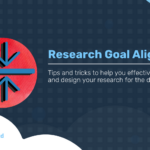Start With Why Review
1. The key message of “Start with Why” is the importance of identifying and understanding the underlying purpose and motivation behind what we do.
2. Simon Sinek argues that great leaders, organizations, and successful individuals start by defining their “why” – the reason behind their actions, beliefs, and goals.
3. Sinek suggests that most organizations and individuals primarily focus on “what” they do and “how” they do it, rather than understanding and communicating their core purpose.
4. He believes that when people are motivated by a strong “why,” it resonates with others, creates a sense of purpose, and inspires loyalty and trust.
5. The book provides numerous examples of successful companies and leaders who have implemented the “golden circle” approach of starting with the why, including Apple and Martin Luther King Jr.
6. Sinek emphasizes that the “why” should be authentic and genuine, providing a strong emotional connection to drive actions and decisions.
7. The author explains the concept of the “limbic brain,” which is responsible for emotions, decision-making, and behavior, stating that the “why” speaks directly to this part of the brain.
8. Sinek introduces the “how” and the “what” as the following layers in the golden circle, where “how” represents the unique value proposition and “what” represents the tangible products or services.
9. The book warns against getting trapped in the “what” mindset, as it can lead to a loss of meaning and differentiation in a crowded market.
10. Sinek argues that organizations should create a culture where everyone understands and lives the “why,” fostering a sense of purpose and creating a more fulfilling work environment.
11. The book explores the importance of communication and storytelling to effectively convey the “why” to others and inspire action.
12. “Start with Why” emphasizes the significance of long-term thinking, stating that it is crucial for enduring success and making a positive impact.
13. Sinek encourages readers to become “why” leaders, focusing on inspiring and leading through purpose rather than just managing operations.
14. The book highlights the dangers of short-term thinking, such as chasing immediate profits at the expense of long-term sustainability.
15. Sinek argues that a strong “why” attracts like-minded individuals who share the same beliefs and values, fostering a united and motivated team.
16. The author stresses the importance of staying true to the “why” and avoiding compromising principles to achieve short-term gains.
17. The book suggests that clarity on the “why” can help individuals and organizations make better decisions by aligning them with their purpose.
18. Sinek promotes the idea that starting with the “why” can help individuals find greater fulfillment and satisfaction in their personal and professional lives.
19. The author encourages readers to define their personal “why” and create a vision that aligns with their values and passions.
20. The book acknowledges the challenges of identifying and articulating the “why” but emphasizes the value of taking the time to discover it.
21. Sinek believes that individuals who understand their “why” have a clear sense of direction and are better equipped to navigate challenges and setbacks.
22. The author argues that a clear “why” can also help individuals find their purpose and contribute meaningfully to society.
23. The book emphasizes that the “why” is not limited to businesses or organizations but can apply to any aspect of life, including personal relationships and community initiatives.
24. Sinek provides practical advice on how to start with why, including the importance of reflection, asking meaningful questions, and seeking feedback from others.
25. The book encourages readers to constantly reassess and refine their “why” to ensure it remains relevant and aligned with their values and circumstances.
26. Sinek suggests that understanding the “why” creates a deeper connection between individuals and the work they do, leading to increased engagement and satisfaction.
27. The book challenges the notion that success is solely measured by financial achievements and argues for a broader definition of success that includes purpose and fulfillment.
28. Sinek shares stories of individuals who have found their “why” and transformed their lives, illustrating the power of this mindset shift.
29. The book reminds readers that the “why” may not always be immediately apparent and may require exploration, patience, and introspection to uncover.
30. “Start with Why” concludes by urging readers to embrace their “why” and take action, reminding them that a sense of purpose can lead to a more fulfilling and impactful life.
More About Start With Why Review
Welcome to my blog! Today, I am thrilled to share a comprehensive review of the groundbreaking book, “Start with Why” by Simon Sinek. This insightful piece of literature has not only garnered widespread acclaim from readers across the globe but has also revolutionized the way we perceive and approach success.
In an era where quick fixes and instant gratification have become the norm, “Start with Why” encourages readers to shift their focus towards a deeper understanding of their purpose and the significance it holds in their personal and professional lives. Sinek’s philosophy challenges conventional thinking by highlighting the importance of finding our “why” before determining our “how” and “what”.
Sinek argues that the most influential and successful leaders, organizations, and individuals triumph not by merely understanding what they do or how they do it but by first understanding their “why”. This concept, which he terms the “Golden Circle”, stipulates that those who start with and fully comprehend the purpose, belief, or cause that drives them are the ones who inspire others, create loyal followings, and accomplish remarkable feats.
The author adeptly employs a combination of in-depth research, anecdotes, and case studies to illustrate his theory. Throughout the book, Sinek delves into the lives of renowned leaders such as Martin Luther King Jr., Steve Jobs, and the Wright brothers, unveiling the common thread that binds them together. It is their unwavering commitment to their “why” that allowed these individuals to overstep boundaries, challenge the status quo, and ultimately leave a lasting impact on the world.
“Start with Why” is not solely catered to leaders, entrepreneurs, or those in management positions. Sinek emphasizes that every person possesses the ability to find and cultivate their “why” irrespective of their role or industry. By discovering our purpose, we tap into a wellspring of motivation, passion, and fulfillment that propels us forward, regardless of the hurdles we may encounter.
One of the key takeaways from this profound exploration is the realization that success is not solely measured by material wealth, power, or external validation. Rather, true success lies in the alignment of our actions with our core values and beliefs. As Sinek eloquently puts it, “People don’t buy what you do; they buy why you do it.”
Perhaps one of the book’s most compelling aspects is its practicality. Sinek not only guides readers through the process of defining their “why” but also provides valuable strategies for effectively communicating it with others. By crafting a clear and inspiring message inspired by our purpose, we have the potential to mobilize a tribe of like-minded individuals who share our vision and amplify our impact.
In a world saturated with information, “Start with Why” offers a refreshing perspective that fuels our enthusiasm and encourages us to dig deeper. By understanding our “why”, we gain a sense of direction, clarity, and resilience, which can ultimately lead us to achieve extraordinary outcomes.
I am excited to delve further into the pages of this extraordinary book and unravel its transformative insights. Join me on this empowering journey, as we explore the boundless possibilities that lie within each and every one of us. Let us embark on an exploration of purpose and meaning, and unlock our limitless potential.
Start With Why Review FAQs:
1. What is the “Start With Why” concept?
The “Start With Why” concept, popularized by Simon Sinek, proposes that successful leaders and organizations begin with a clear understanding of their purpose or “why” before moving on to “how” and “what.” It emphasizes the importance of understanding one’s motivation and belief system to inspire loyalty and drive innovation.
2. Why is it crucial to start with why?
Starting with why helps individuals and organizations align their actions with their core values and beliefs. By clearly defining their purpose, they can establish a strong foundation for decision-making, inspire others, and differentiate themselves from competitors.
3. How can I discover my “why”?
Discovering your “why” involves introspection and reflection on your values, passions, and experiences. You can ask yourself questions such as “What brings me the most fulfillment?” and “What impact do I want to make in the world?” Consulting with trusted mentors or taking personality assessments can also help you gain insights into your purpose.
4. Can the “Start With Why” concept be applied to personal life as well?
Absolutely! The “Start With Why” concept is equally applicable to personal life. Understanding your purpose can guide your choices, relationships, and goals, helping you live a more meaningful and fulfilling life.
5. How can organizations implement the “Start With Why” concept?
Organizations can implement the “Start With Why” concept by clearly defining and communicating their purpose to employees, customers, and stakeholders. They should align their actions and messaging with their purpose, fostering a culture rooted in shared values and inspiring others to join their cause.
6. What are some examples of companies that exemplify the “Start With Why” concept?
Companies like Apple, Southwest Airlines, and Nike are often cited as examples of organizations that effectively communicate their “why” to create strong customer loyalty and drive innovation. These companies focus on their purpose rather than just selling products, creating a deeper emotional connection with their consumers.
7. How does starting with why impact employee engagement?
When organizations clearly communicate their purpose and values, employees feel a greater sense of belonging and meaning in their work. This leads to higher levels of engagement, motivation, and productivity as employees understand how their individual contributions contribute to the greater purpose.
8. Is it possible to change an organization’s “why”?
While an organization’s “why” may evolve over time, it should remain rooted in its core values and beliefs. Organizations may refine their purpose and adapt to changing circumstances, but a drastic departure from the original “why” can lead to confusion and loss of trust.
9. Can individuals have multiple “whys”?
While individuals can have multiple interests and passions, it is crucial to identify a unifying theme or purpose that ties them together. Lacking a clear “why” can result in a lack of direction and fulfillment.
10. Can the “Start With Why” concept be applied in educational settings?
Yes, the “Start With Why” concept is highly applicable in educational settings. By helping students understand their personal purpose and teachers establishing a clear educational purpose, it can foster a more engaged and motivated learning environment, enhancing students’ overall educational experience.


















